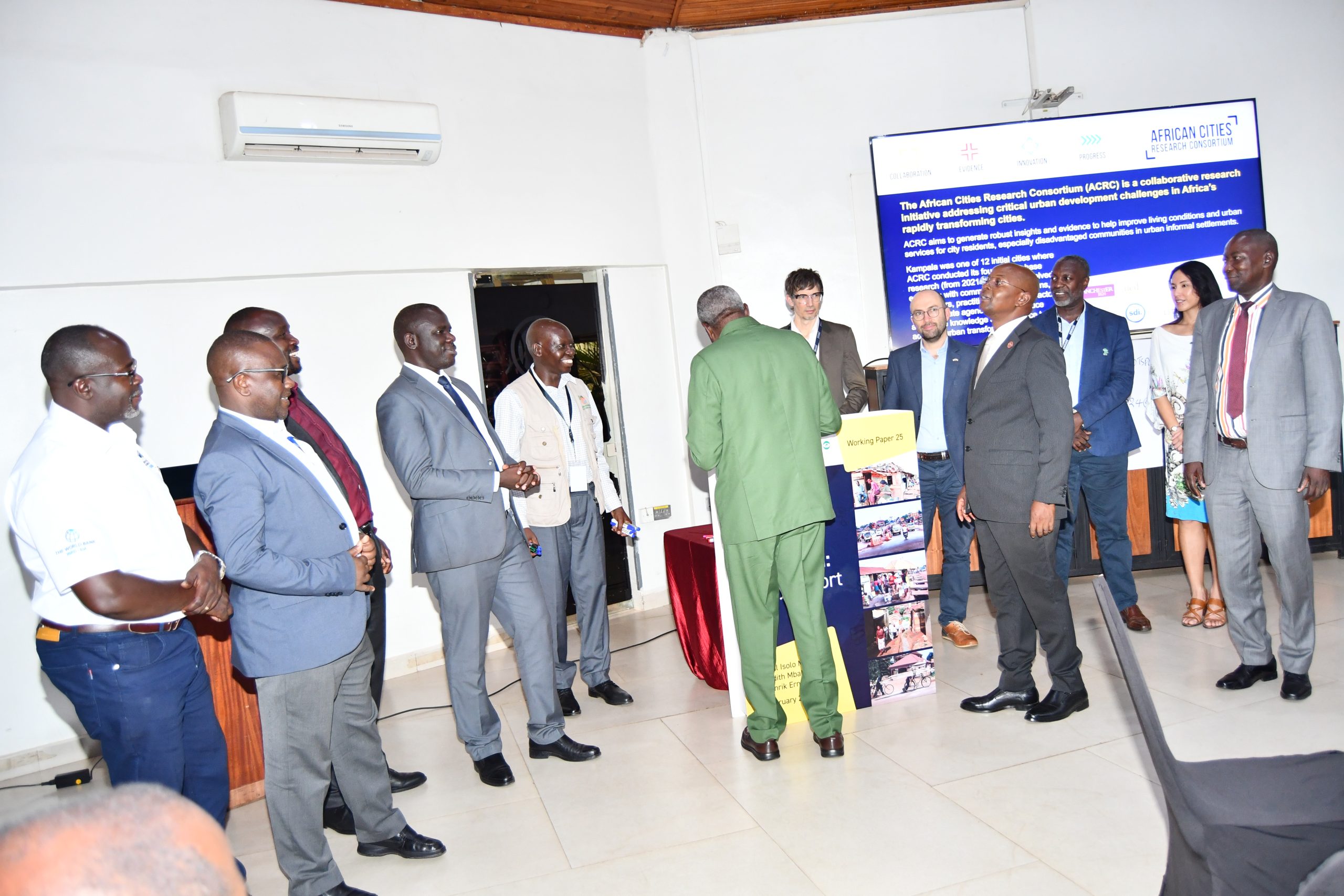
Makerere University has released a comprehensive report detailing the key challenges affecting urban development in Kampala, one of Africa’s fastest-growing cities. With an annual population growth rate of 5.6%, Kampala faces significant pressure on its infrastructure and urban systems. The report, part of the African Cities Research Consortium (ACRC) program, aims to provide actionable insights to improve the living conditions and urban services for all residents, especially marginalized communities.
Launched by Hon. Mario Obiga Kania, the Minister of State for Urban Development, on 13th February 2025, the report explores the political, social, and infrastructural dynamics that have shaped urban development in Kampala. The analysis covers critical domains, including informal settlements, youth and capability development, land and connectivity, and health, wellbeing, and nutrition.
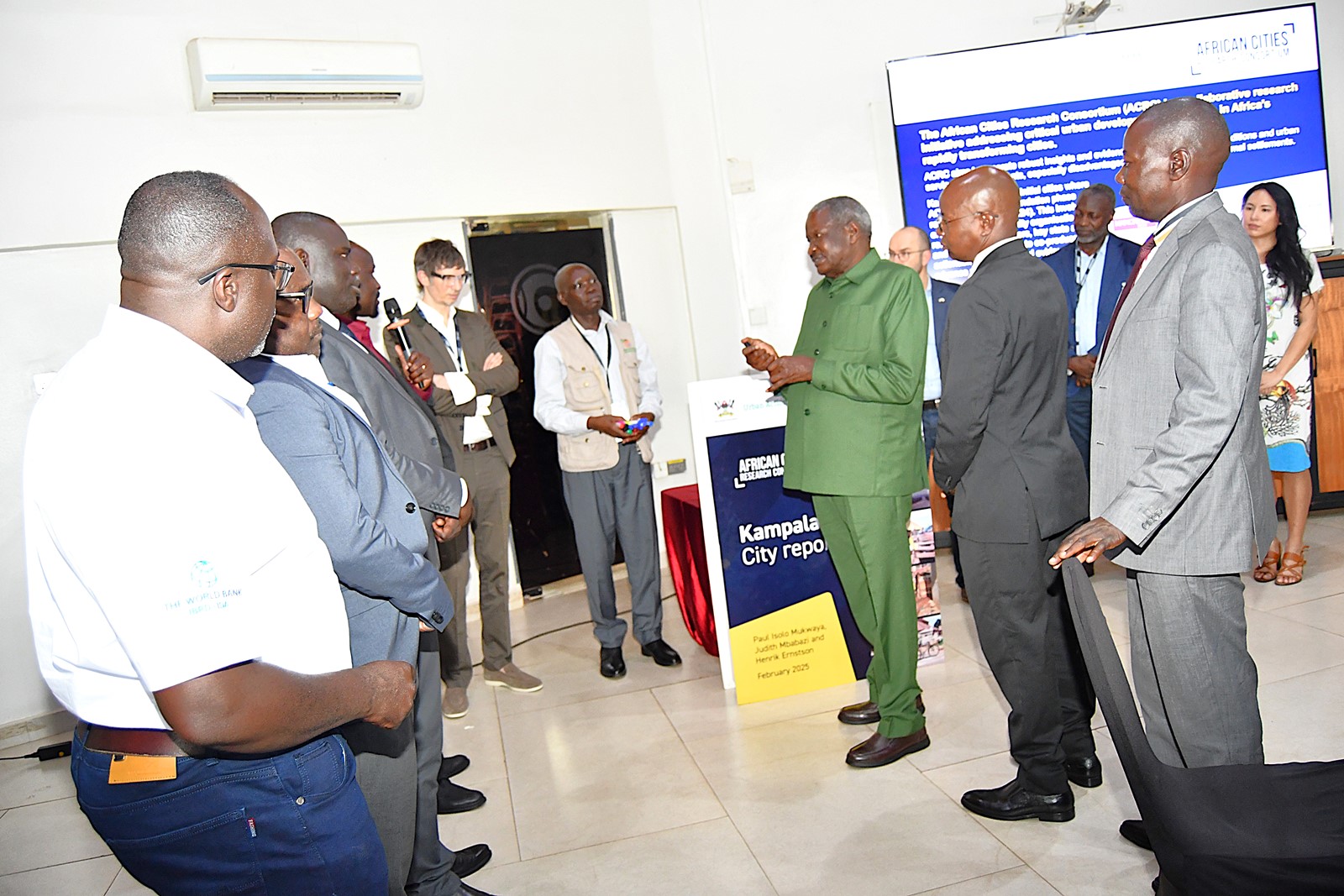
A Holistic Approach to Kampala’s Urban Challenges
The findings are based on extensive research by Makerere University‘s Urban Action Lab, with contributions from scholars, practitioners, and experts both local and international. The report identifies the most pressing challenges facing the city, particularly for its disadvantaged communities, and provides a framework for addressing these issues in a way that is equitable, sustainable, and inclusive. Key contributors to the research include: Dr. Paul Isolo Mukwaya, lead author and Head, Department of Geography, Geo-Informatics and Climatic Sciences at Makerere University; Ms. Judith Mbabazi, Researcher, Urban Action Lab, Makerere University; Prof. Henrik Ernstson, Honorary Senior Research Fellow, The University of Manchester, UK; Dr. Peter Kasaija, Dr. Daniel Ochieng Ologe, Dr. Ritah Nakanjako, and Dr. Kareem Buyana, Researchers, Urban Action Lab, Makerere University; Ms. Hasifa Namuli, Wakiso Town Council Planner; Dr. Gloria Seruwagi, School of Public Health, Makerere University; Dr. Nansozi K. Muwanga, and Patricia Liola Tona Katto, Julius Nyerere Leadership Centre; Dr. Henry Bazira, Ms. Maria Ssematiko, Dr. Eria Serwajja, Mr. Muhamed Lunyago, and Dr. Doreen Kobusingye.
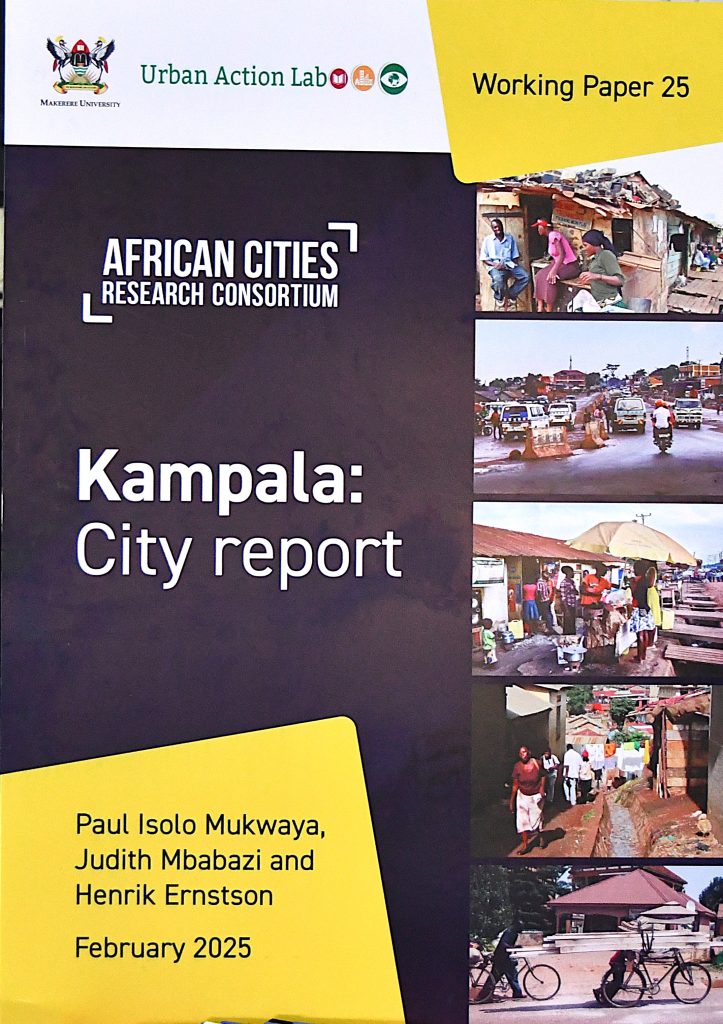
Key Findings
- Infrastructure Deficits: The city is struggling with significant deficits in infrastructure and service provision, which are further exacerbated by rapid population growth.
- Governance Challenges: Multiple actors, including the Kampala Capital City Authority (KCCA) and the central government, often fail to coordinate effectively on service delivery. This lack of coordination leads to inefficiencies and contestations within city systems.
- Inequality in Service Delivery: Informal settlements are disproportionately affected by poor service delivery, including inefficient transport, inadequate electricity distribution, and insecure neighbourhoods.
- Privatization and Market-Driven Approaches: Privatization of services has led to a fragmented system, where gaps in service delivery are filled by private actors, resulting in unreliable and inaccessible services for many, particularly in informal settlements.
- Mistrust and Governance Issues: Political struggles, corruption, and ineffective governance slow down reform efforts and hinder sustained investment in key urban sectors.
- Political Elites and Informality: The influence of political and business elites operating informally impacts critical decisions on urban development, particularly regarding land, infrastructure, and public services.
- Health and Nutrition Gaps: Despite abundant food, low incomes and poor nutrition knowledge contribute to poor health outcomes. A more informed and accessible approach to nutrition is needed.
- Youth and Vulnerability: Kampala’s youth, who represent 46% of the population, are underserved by policies and face high rates of teenage pregnancies and drug abuse, perpetuating cycles of poverty.
- Land Market Exploitation: Land brokers take advantage of information gaps in the land market, complicating efforts to address housing and land tenure issues.
- Informal Settlements and Political Capital: Informal settlements in Kampala are becoming significant for economic rents and political leverage, which further complicates efforts to address urban challenges.
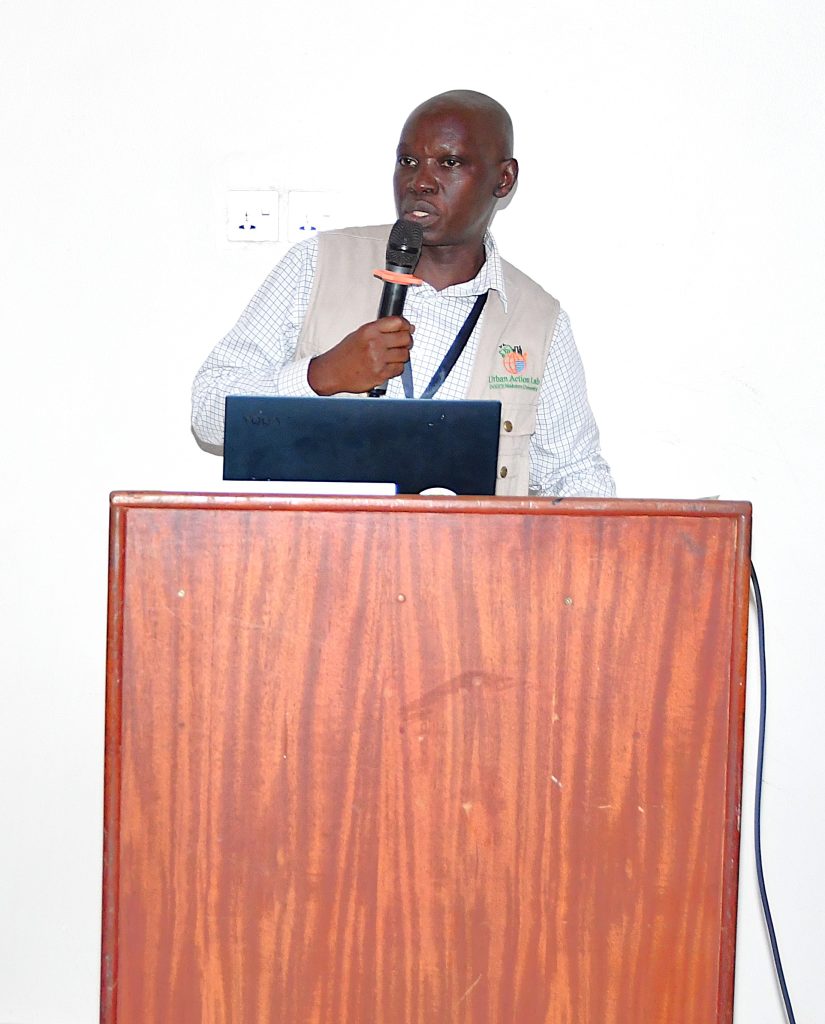
Proposed Reforms
The report suggests several priority reforms to improve Kampala’s urban development, including:
- Upgrading Informal Settlements: Addressing poor housing conditions and infrastructure in informal settlements.
- Proper Land Registration: Enhancing land tenure security through improved registration systems.
- Waste Management and Public Health: Implementing sustainable waste management systems and promoting healthy diets through public health campaigns.
- Youth Skills Development: Creating apprenticeship programs, vocational training, and life-skills initiatives for youth.
- Improving State Capabilities: Strengthening the capacity of local and central governments to manage urban challenges, with a focus on financing, human resource development, and forging productive partnerships with non-state actors.
- The authors stress the importance of community participation in governance and propose that economists, urban researchers, and other stakeholders provide urban policy advice without being seen as political opposition.
- Other proposed initiatives include: i) the Kawenja Plastic Waste Entrepreneurship and Innovation Hub aims to improve a slum upgrading project in Kisenyi III, focusing on flood control and livelihood enhancement. It will create a network of plastic waste collectors, conduct a situation analysis, and collaborate with Kampala Capital City Authority (KCCA) and other agencies. The initiative will involve procuring and installing equipment to formalize recycling efforts. ii) Improved Hygiene and Sanitation at Ggaba Market: To address hygiene and sanitation challenges faced by food vendors, the report proposes the installation of a sludge transfer tank and a three-wheeler vehicle at Ggaba Market. This intervention aims to enhance sanitation standards and create a healthier environment for both vendors and customers.
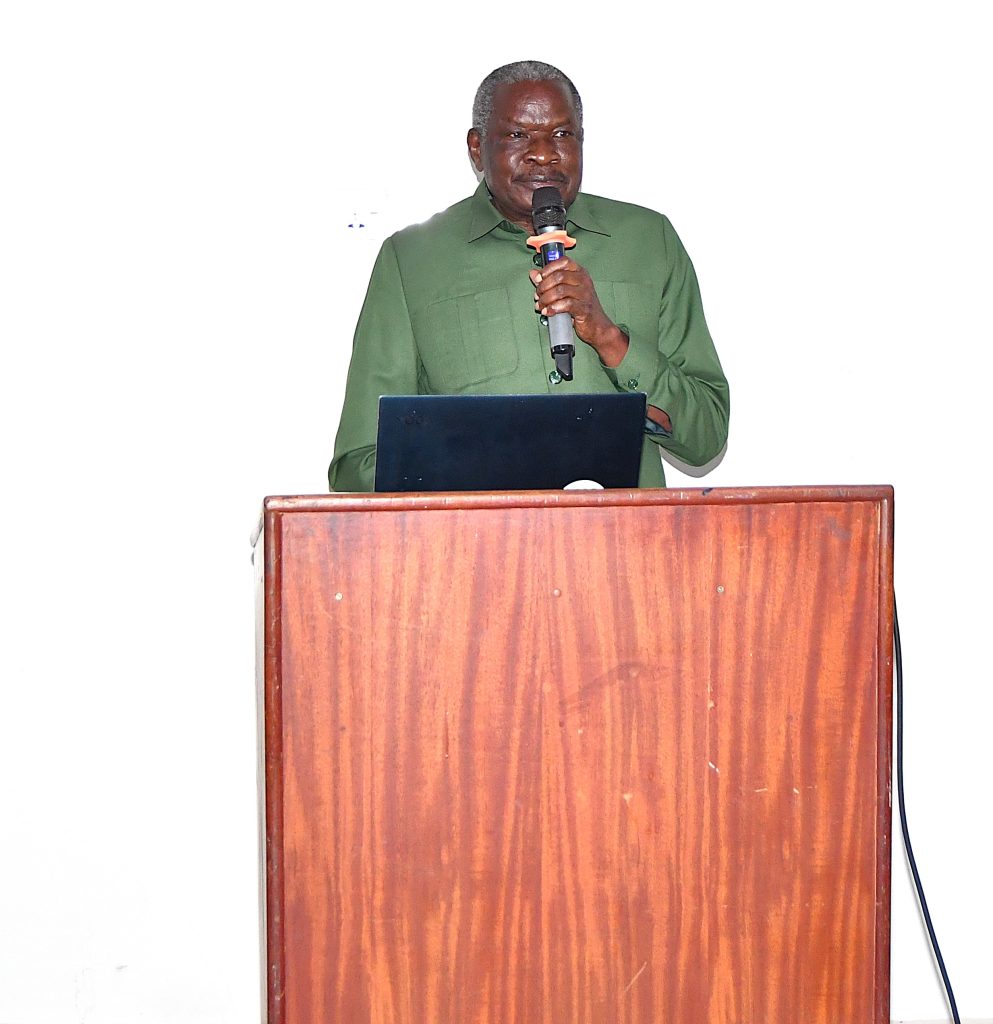
Remarks from Key Stakeholders
The meeting was attended by representatives from government and non-government organizations, as well as leaders from the Kampala Capital City Authority, who shared insights into the city’s development challenges and proposed several reforms for improvement.
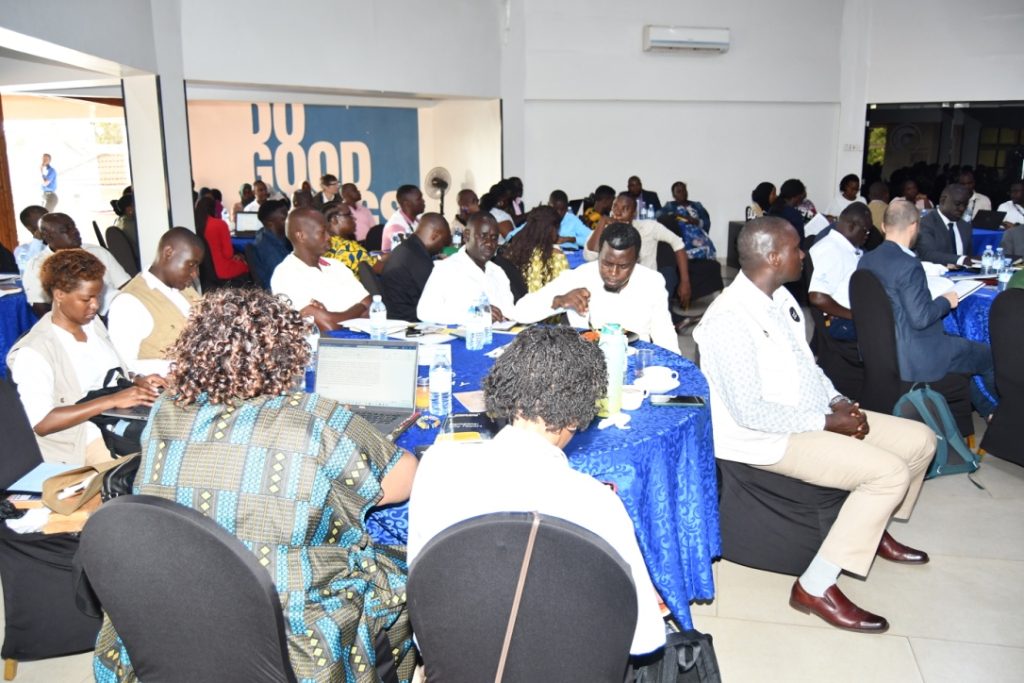
Hon. Mario Obiga Kania, Minister of State for Urban Development
In his address, Hon. Mario Obiga Kania, Minister of State for Urban Development encouraged city leaders to view Kampala’s challenges as opportunities for growth. He highlighted the city’s potential to generate revenue for Uganda and emphasized the need for systemic improvements in service delivery. The Minister commended the researchers and committed to supporting the implementation of their recommendations. “Research should be viewed as a tool for solving issues, not just lamenting over them. Our leaders need to recognize Kampala as an integral part of Uganda’s governance due to its vital role in the country’s development. We must prioritize making Kampala thrive, as it is the central hub for commercial activity. City planning should accommodate and support informal trade effectively. Moving forward, we must focus on reducing youth unemployment through life-skills programs. Additionally, there is an urgent need to improve waste management, enhance financial literacy, and better regulate refugee affairs.”
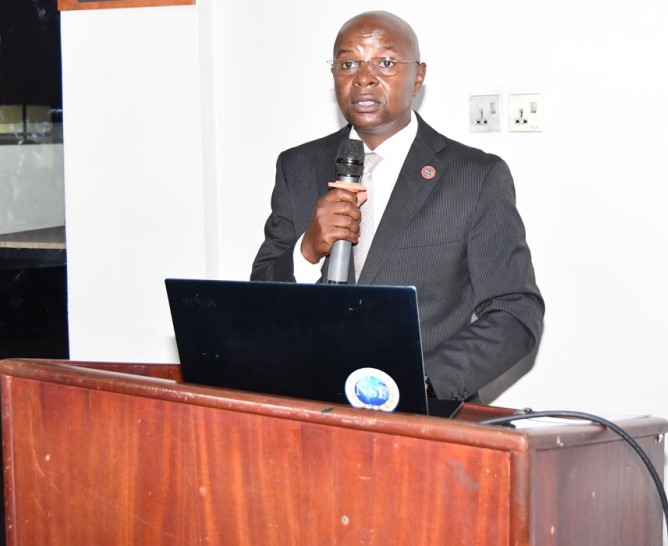
The Lord Mayor of Kampala
Briefing participants on the city development challenges, the Lord Mayor, Erias Lukwago expressed concern over the growing political interference and the lack of funding for planned activities. “On several occasions, we have struggled to address issues of physical planning, yet Kampala still lacks a structural plan. The Directorate of Physical Planning at KCCA is the least funded. While Kampala boasts of the best natural environment, its built environment is among the worst. There is a pressing need to transform the city’s vast slums into the ‘Garden City of Africa’.” He expressed gratitude to ACRC for the report, noting that its findings would be crucial in guiding the implementation of reforms in the City.
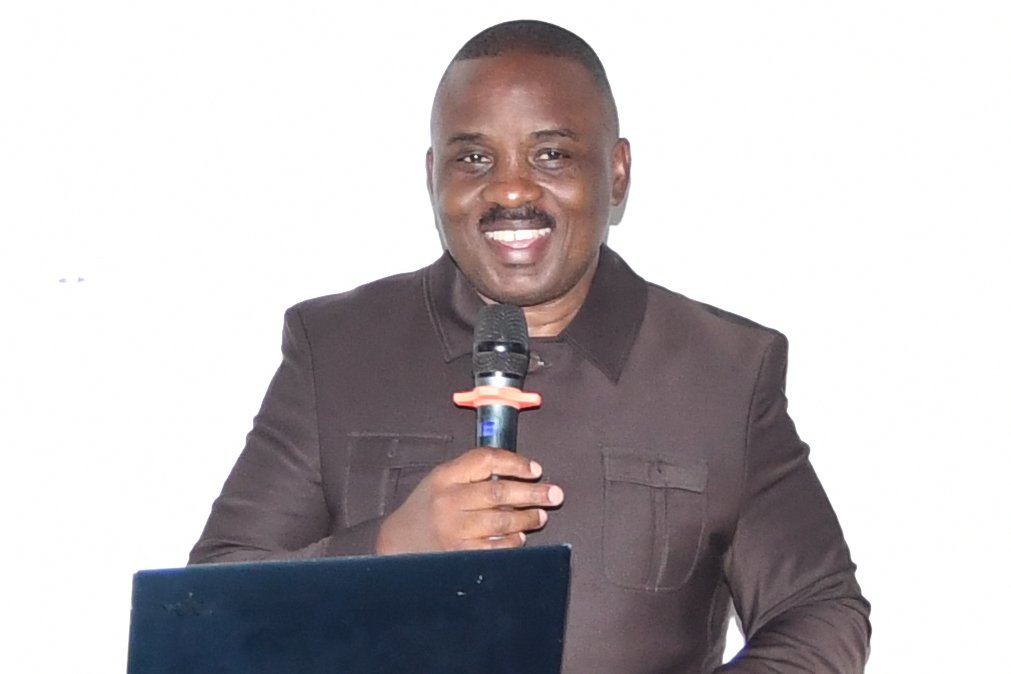
Vice Chancellor’s address
In his address, the Vice Chancellor of Makerere University, represented by Prof. Edward Bbaale, Principal of the College of Business and Management Sciences, expressed appreciation to the ACRC research team for dedicating their time and resources to investigate the challenges hindering progress in the city. “As Vice Chancellor, I acknowledge the significant role our university plays in shaping the future of Kampala and Uganda. Our mission to foster innovation, research, and education must address the challenges of urban development, enabling us to create sustainable solutions for growth. A key issue is the growing demand for housing, driven by Kampala’s rapid population growth. However, the supply of affordable, quality housing has not kept up, resulting in overcrowded slums and poor living conditions. As an academic institution, we are well-placed to contribute by researching affordable building technologies, promoting sustainable urban planning, and collaborating with policymakers to ensure equitable housing for all.”
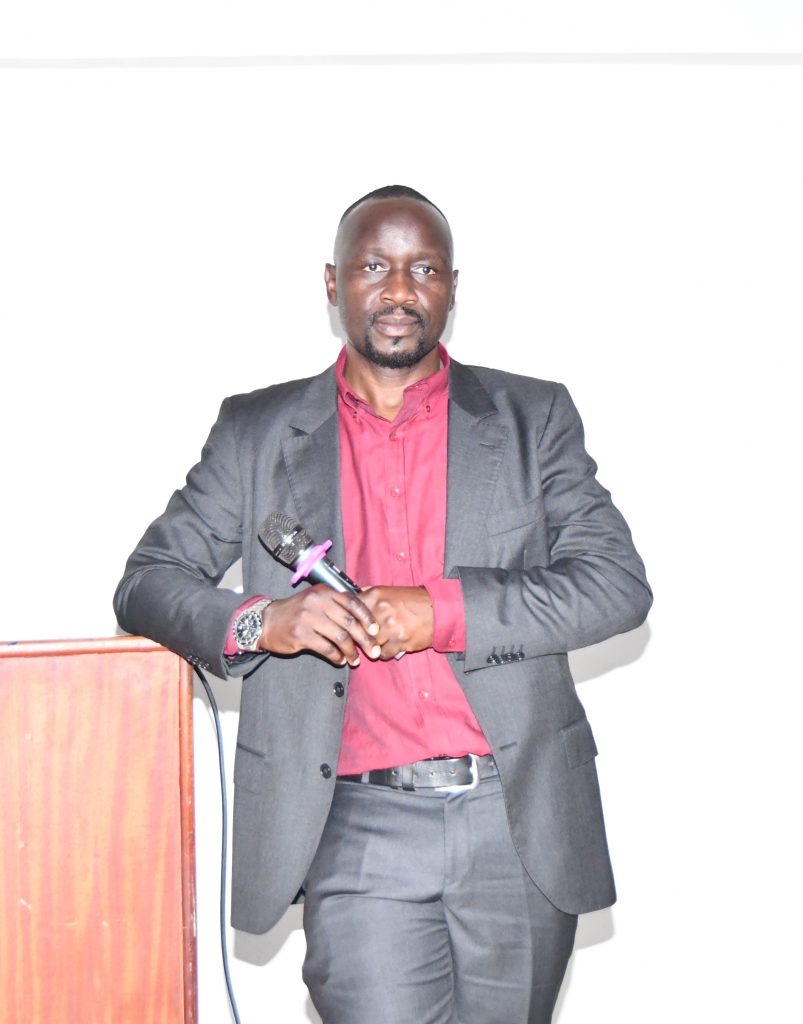
Commenting on the challenges posed by the city’s population growth, the Vice Chancellor pointed out the inadequacies in transport infrastructure and waste management. He stressed the importance of collaborating with researchers to develop alternative transportation models, smart mobility solutions, and urban planning that prioritizes walkability while reducing reliance on private cars. Additionally, he highlighted the need for further research into waste-to-energy technologies, the creation of sustainable waste management systems, and the promotion of environmentally responsible practices.
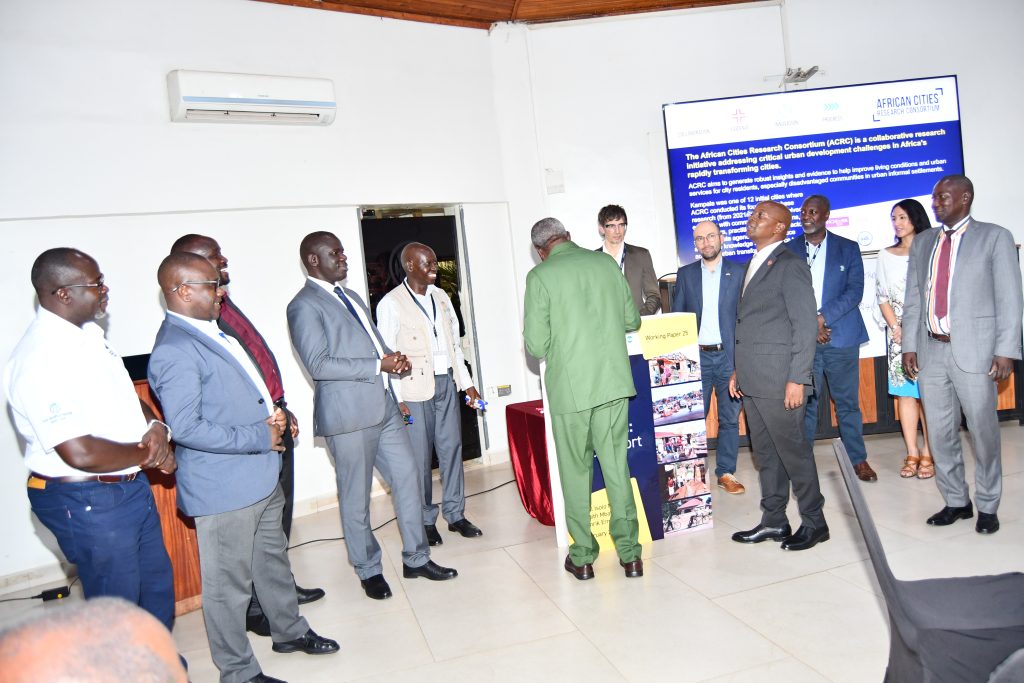
“As Kampala expands, we must also consider the preservation of its natural environment. Green spaces, parks, and urban forests are essential for the well-being of the city’s inhabitants. They provide recreational areas, improve air quality, reduce urban heat, and contribute to the overall aesthetic of the city,” he explained.
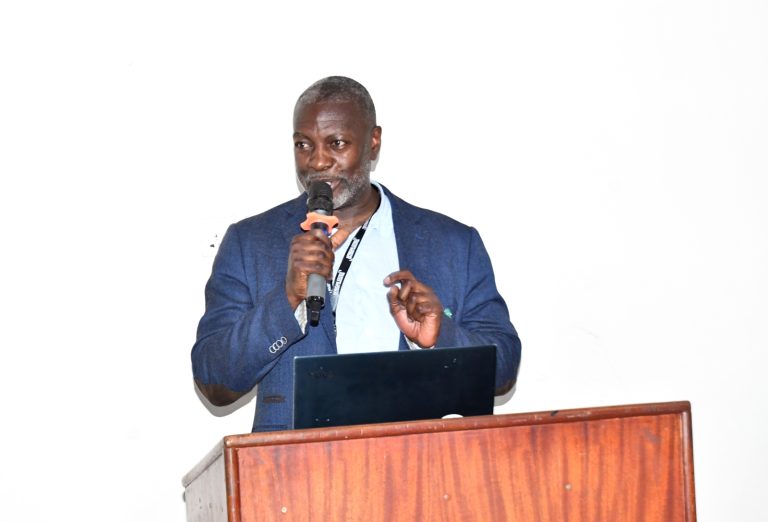
Mr. Joseph Walter Pade, the Commissioner, Urban Development at the Ministry of Lands, Housing, and Urban Development, emphasized the need to involve the entire country in addressing the challenges facing Kampala. He also highlighted the importance of changing mindsets to tackle the city’s development issues.
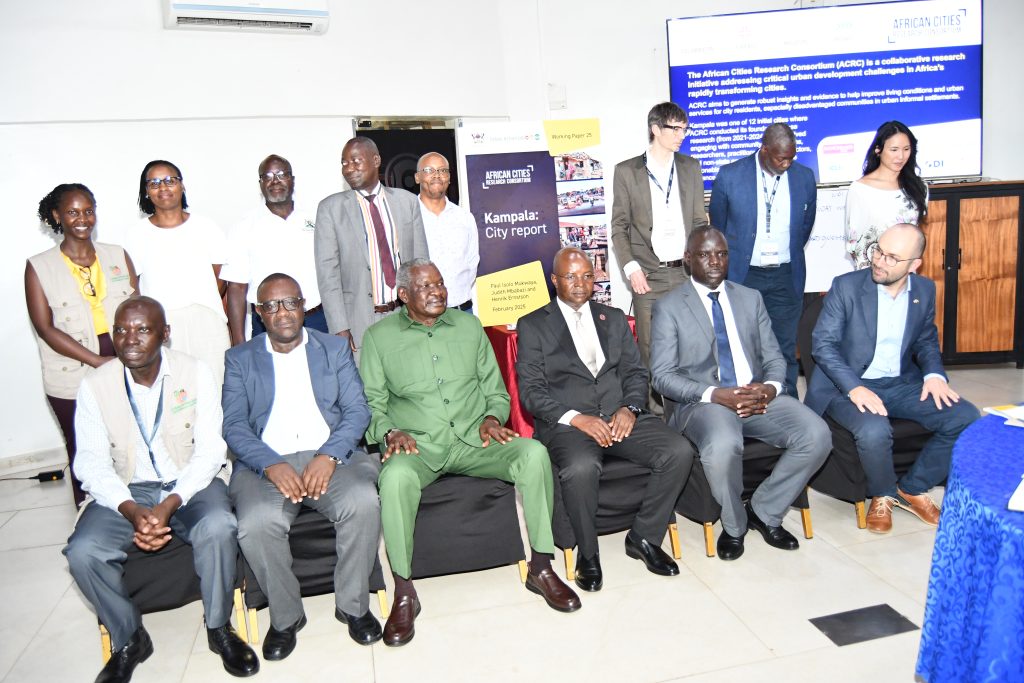
The Dean of the School of Forestry, Environmental and Geographical Sciences, Dr. Revocatus Twinomuhangi, commended the research team for the excellent work and called for the wider dissemination of the findings to maximize their impact.

